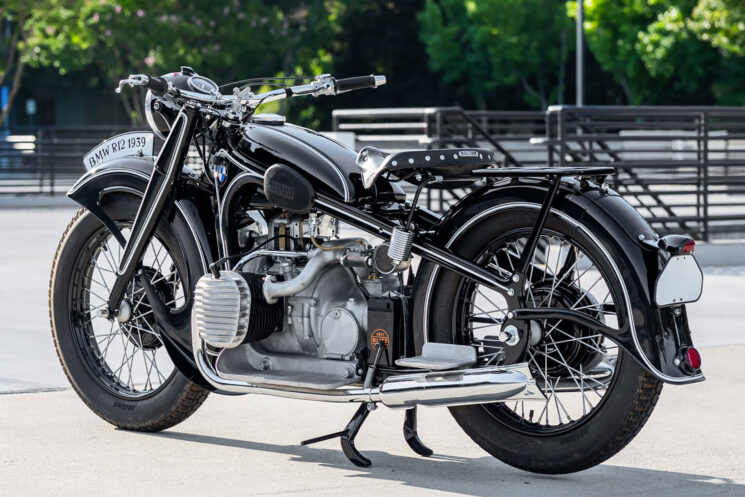
Our selection is bookended by a pair of BMW R12 boxers this week—except one is brand new, and the other is 85 years old. We also drool over a luscious Kawasaki Z1 from the masters of Japanese restomods, AC Sanctuary, and examine the new Royal Enfield Guerilla 450.
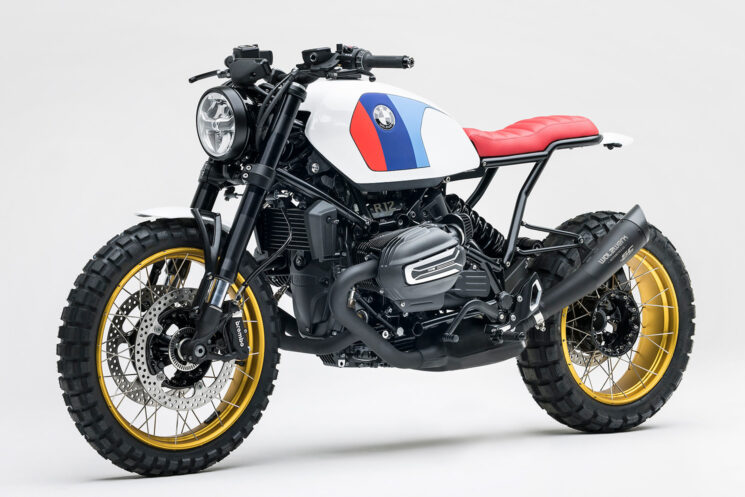
BMW R12 Scrambler by WalzWerk Of all the options in the new BMW R12 boxer lineup, there is one glaring omission—BMW doesn’t offer a scrambler variant. To somewhat remedy this, BMW Motorrad approached Marcus Walz and his team at WalzWerk to highlight the new R12’s customizability, by turning it into a scrambler.
As expected, they knocked it out of the park.
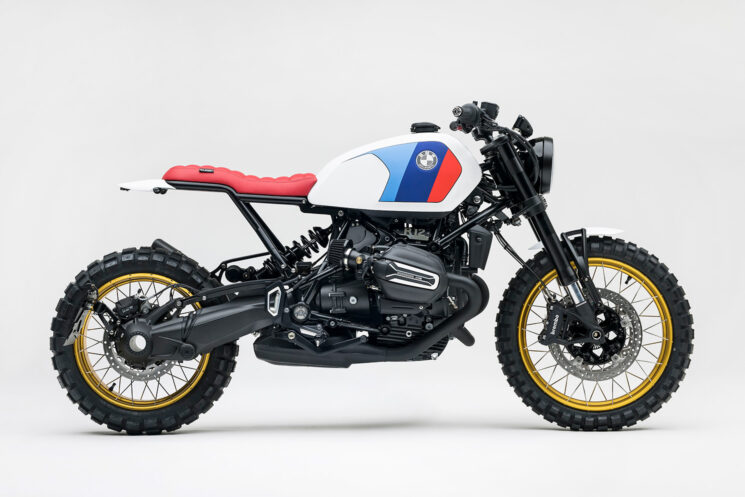
The subframe on the new R12 can be undone with just four bolts—a point that WalzWerk wanted to highlight. To do this they made a new subframe, basing the design on their über-popular Schizzo range of parts for older BMW airheads. With the subframe mocked up they set the stance by fitting a set of 19F/17R edge-spoke wheels (in gold, of course), taken from a BMW R1250GS.
The front forks have been extended by an inch, while Progressive front springs and a custom rear shock from Touratech keep the Continental TKC80 tires planted.
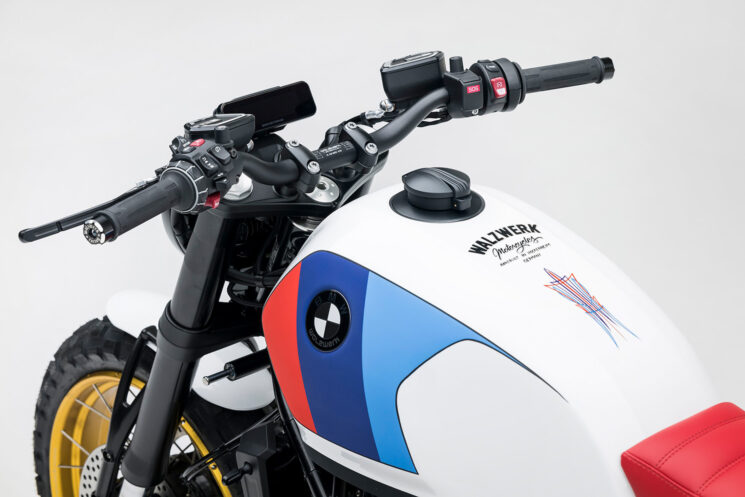
The standard steel fuel tank has been lightly modified, with subtle knee dents and a Monza-style fuel filler cap for a more classic silhouette. It wears traditional BMW Motorsport colors, with a bright red leather cover on the seat.
Fat bars and aluminum mirrors from the WalzWerk catalog simplify the rider cockpit, which sits behind the factory LED headlight on WalzWerk brackets. The turn signals and tail light are also WalzWerk parts, with a Rizoma side-mounted license plate bracket attached to the swingarm.
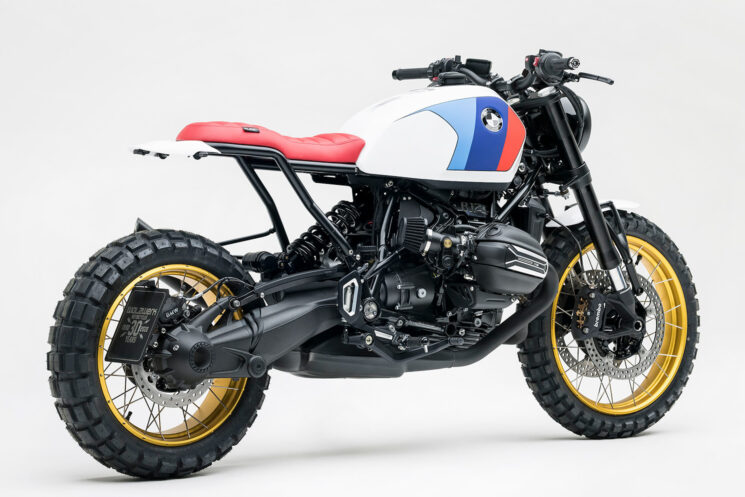
The airbox was ditched, along with everything else under the seat. WalzWerk pod filters and a complete exhaust system from SC-Project in Italy help the engine breathe, unleashing a few more buff German horses.
The WalzWerk team pumps out a steady stream of custom bikes every month and they have committed to building their new R12 Scrambler as a limited production run. With any luck, BMW Motorrad’s designers are taking notes. [Source]
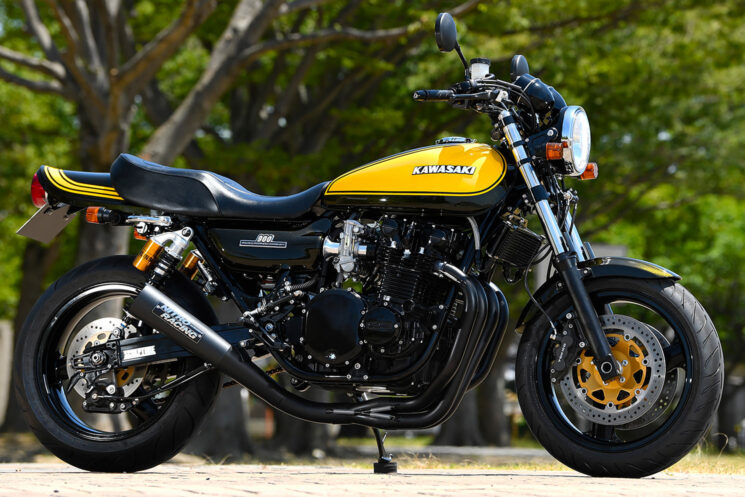
Kawasaki Z1 by AC Sanctuary Whenever we forget how rad classic four-cylinder Kawasakis are, we head over to AC Sanctuary’s website to set us straight. Our last visit yielded RCM-602—a Kawasaki Z1 with all the right goodies in all the right places.
Remarkably, AC Sanctuary considers this a ‘budget’ build. Citing the rising prices of good-condition Kawaski Z1 donors as a motivator, their client requested a limited build sheet. The idea was to bring the bike up to a respectable spec, with a view to adding more upgrades later.
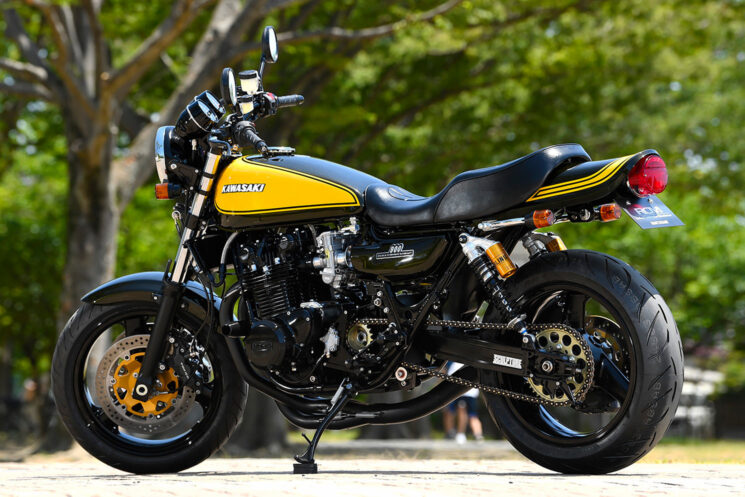
That said, there are no shortcuts here. AC Sanctuary overhauled the motor with fresh internals, honed the cylinders, and updated the intake, exhaust, and ignition systems. The Z1 now inhales through a set of Mikuni TMR36 carbs and exhales via a Nitro Racing exhaust system.
To save a buck, AC Sanctuary repurposed the forks, wheels, and brakes from a 2000s Kawasaki ZRX1200. The ZRX forks are shorter than the OEM Z1 units, so they had to be extended. A Sculpture swingarm does duty out back, connected to a pair of Öhlins shocks, while Metzeler Sportec tires offer modern grip.
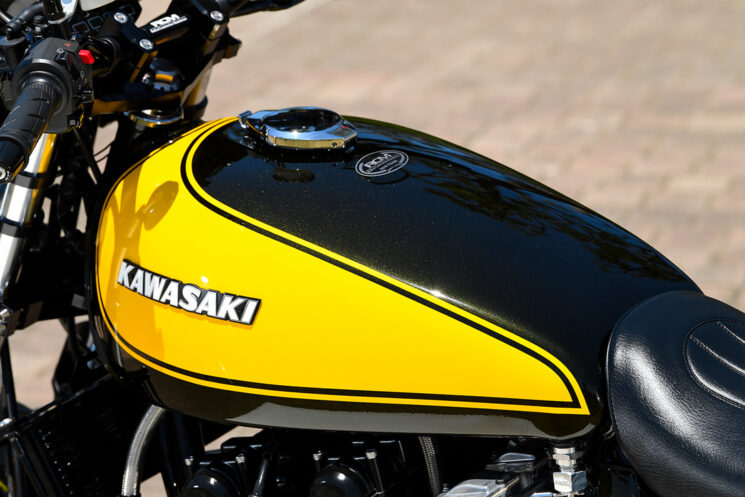
The build is littered with subtle upgrades and clever hop-up parts. And then there’s the livery; a beguiling mix of deep flaky green and bright yellow.
This Zed proves once again that AC Sanctuary is the master of vintage superbike restomods. [More]
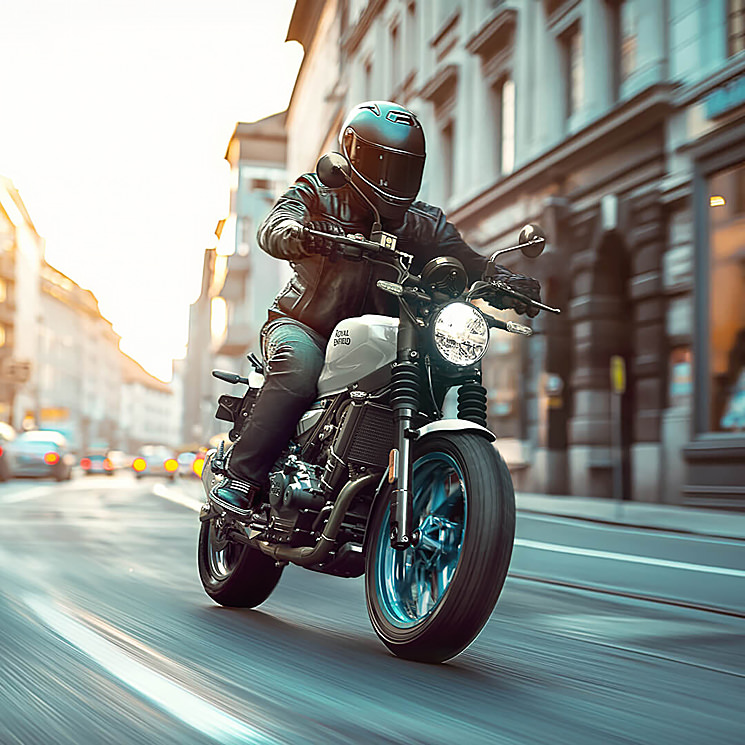
The new Royal Enfield Guerrilla 450 Hot on the heels of Royal Enfield’s reboot of their Himalayan 450 comes this—the all-new Royal Enfield Guerrilla 450. The mid-size 400-ish-cc market just got a little hotter, and we’re here for it. Marketing the Guerrilla as the “return of the real roadster,” Royal Enfield has set their sights squarely on the plastic-covered, mid-sized sportbike market.
If the Guerrilla 450 looks like a naked Himalayan to you, you’re not alone. The tank is similar to the Himalayan 450, but it is stripped of the ADV-style bar work. Left bare, the muscular shoulders on the tank are on full display, as is the bike’s tubular frame.
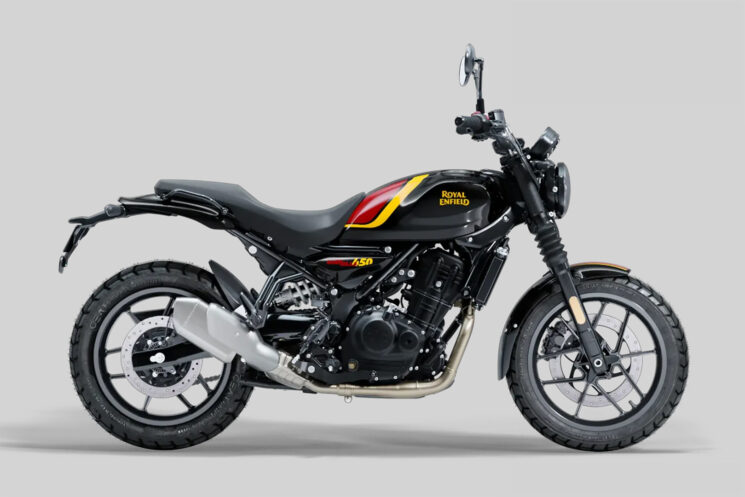
A simple round LED headlight is backed up with a simple, round dashboard and tall, wide bars. The curvy tank swoops into a long single-piece seat, which sits at 30.7 inches tall. Speaking of the seat, it has been designed with neutral ergonomics in mind, with an easy reach to the bars and foot pegs.
The front suspension is new and features a sharper steering angle compared to the Himalayan. The swingarm is also shorter, and these two aspects should give the Guerrilla some pretty quick handling; exactly what you want around city streets. We also love the chunky wheel and tire combination, and the outlandish factory paint schemes.
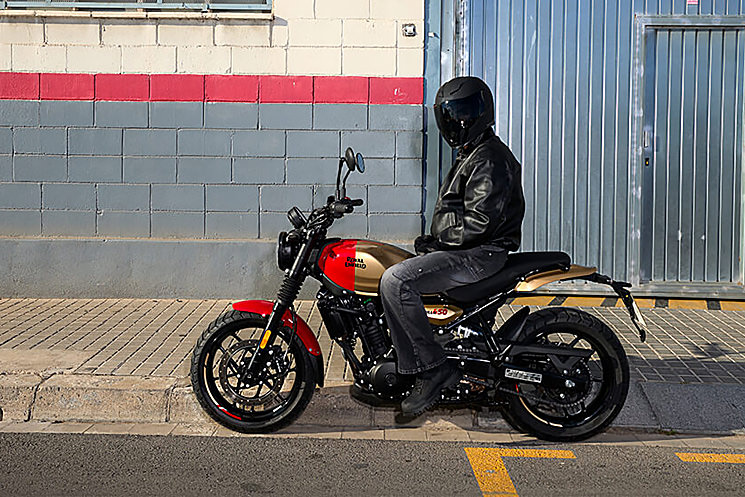
At the heart of the new roadster is the 452 cc liquid-cooled Sherpa engine, the same as the one found in the Himalayan. Royal Enfield’s engineers have tuned the Guerrilla for street use, saying that power should be even across the entire rev range, with around 40 hp of power and 40 Nm of torque on tap.
The two different engine modes are quite self-explanatory (‘Eco’ and ‘Performance’), and some great tech has been built into the TFT dashboard. For extra acceleration on the street, the Guerrilla sports fewer teeth on the rear sprocket compared to the Himalayan. Clicking through the six-speed transmission should be quite a hoot, especially with the sub-411-pound curb weight.
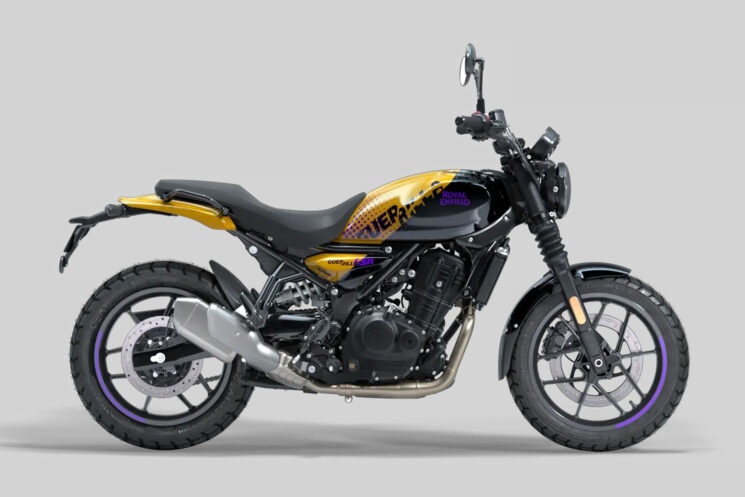
Pictures and videos show the Guerrilla 450 as a great street bike that is sure to interest a lot of people. However, there are some things that we don’t like. Firstly, although the 42 mm forks were developed with Showa, something chunkier would suit the bike better. Another drawback is the 2.9-gallon fuel tank, which will likely require frequent fuel stops.
While it took Royal Enfield an age to follow the outgoing Himalayan 411 up with the naked Scram 411, we’re glad they didn’t wait that long this time around. The new Guerrilla 450 is a return to simplicity and fun—and that’s exactly what Royal Enfield is great at right now. [Royal Enfield Guerrilla 450]
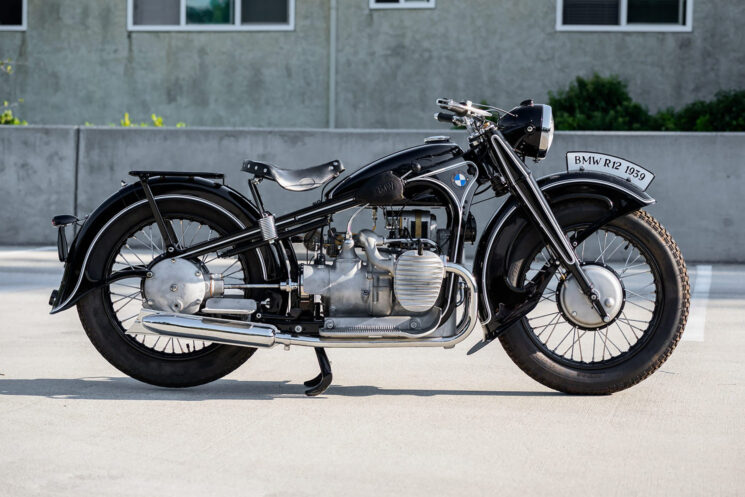
1939 BMW R12 Currently located in San Jose, California, this 1939 BMW R12 is a stunning example of an early airhead. It shares a name and more than a few design elements with its great-grandchild—the 2024 BMW R12—like its sloping bone line, round headlight, and boxer engine. But a lot has changed in the last 85 years.
Aesthetically, the history is obvious. Some of the 1939 R12 details can be found on bikes like the new BMW R18, such as the beautifully balanced fenders, the fishtail exhausts, and the exposed shaft drive. Being a far simpler machine, the R12 has a much more delicate disposition compared to its behemoth-like modern-day counterparts, but it’s great that BMW uses details from the past to influence its modern machinery.
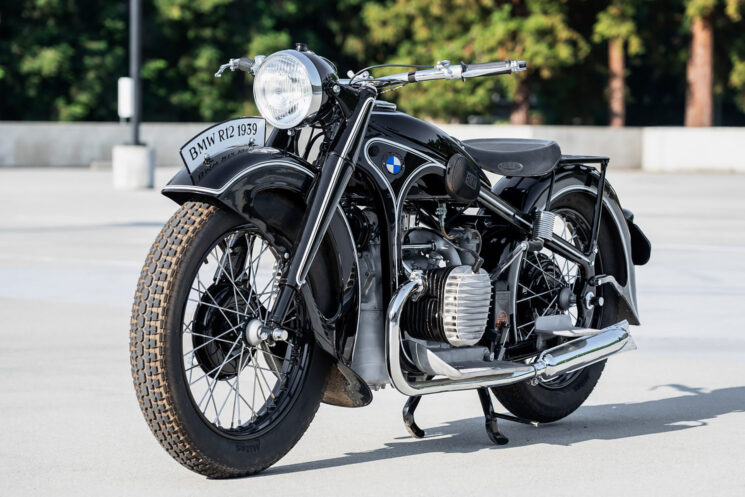
The 1939 R12 features a 745 cc boxer engine—a displacement that was relatively large for its time. The engine in this particular R12 was originally earmarked to be sent to the German Army Ordnance Office in Magdeburg, but it was mated to chassis 45277 at some point later down the line. However, chassis 45277 was produced in the same year as the engine and was also meant for military use.
After the war, the bike lived in Eastern Europe and was bought by the seller in 2023 after they found it in Lithuania. The bike was then taken to Poland, completely restored, and painted in classic BMW black with white pinstripes.
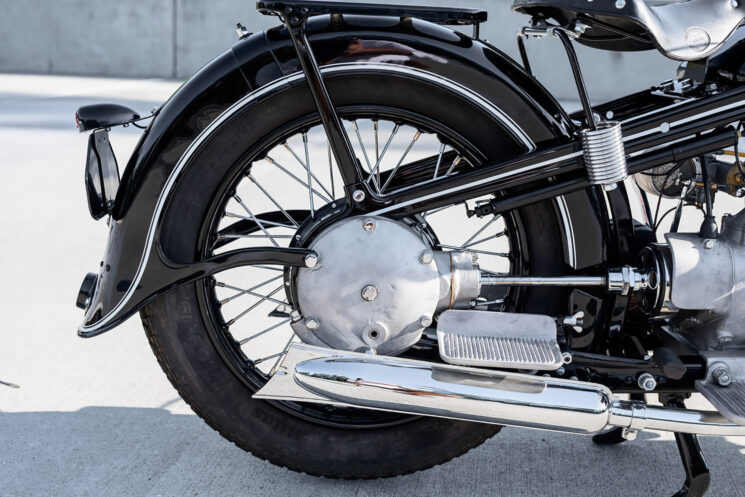
The front forks are telescopic but the back end is rigid with only the double-sprung Drilastic solo saddle keeping things comfortable. That said, we can picture ourselves sitting behind those wide bars, slowly shifting through the rebuilt four-speed transmission by hand. Other details that stand out are the aluminum rider and passenger footboards, rubber knee pads, and rear luggage rack.
If you can picture yourself astride this 18-horsepower weapon of an appreciating asset, you’re out of luck. It just sold for a modest $40,000 on Bring A Trailer. Better luck next time. [Source]
